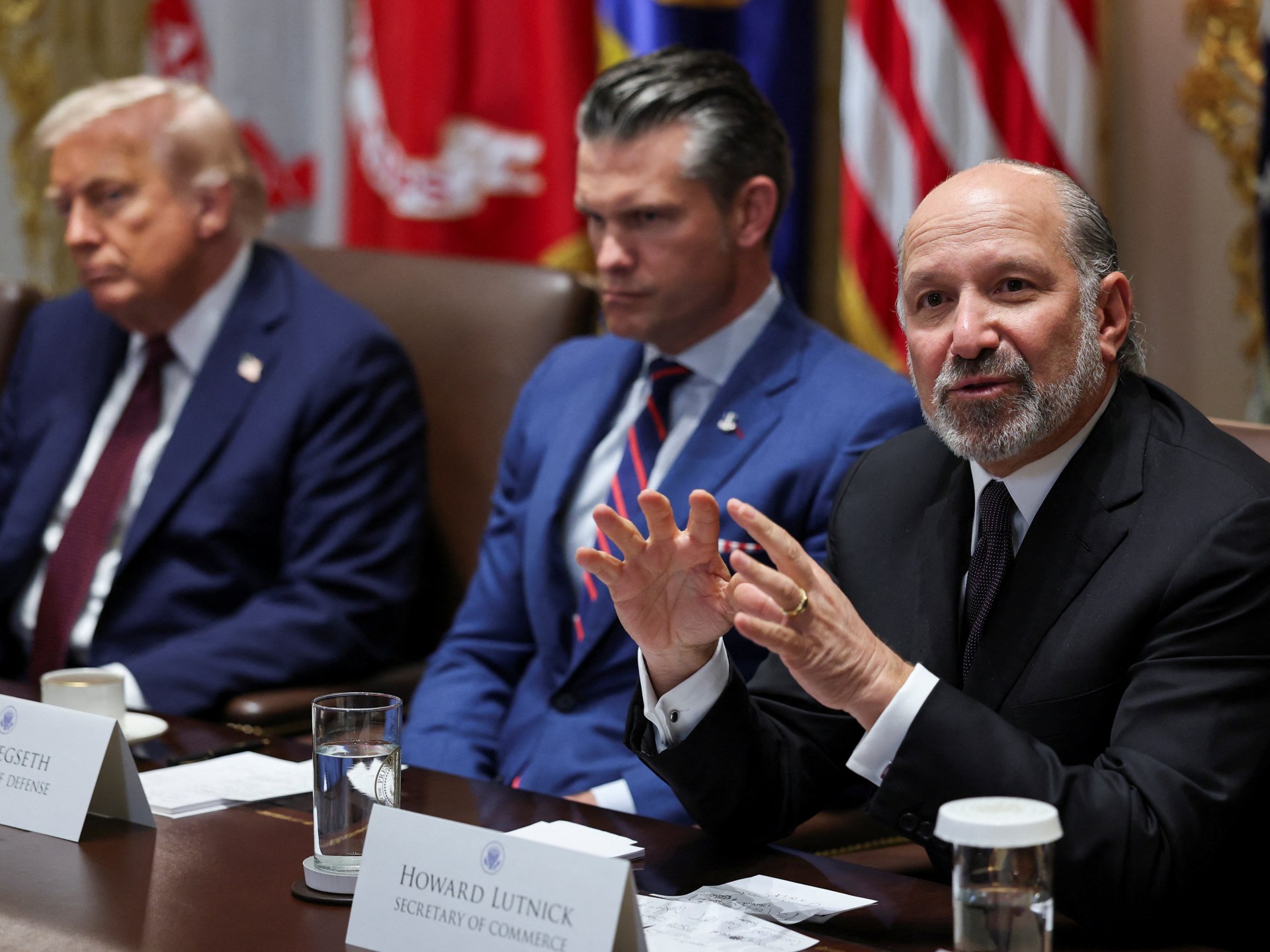Donald Trump’s administration is considering buying a stake in domestic defense contractors, including Lockheed Martin, an aerospace company.
As he defended Trump’s demands for a bigger role in business, Secretary of Commerce Howard Lutnick made hints that the administration might invest in the business on Tuesday.
When asked if the administration was considering acquiring assets from companies like Lockheed Martin, Boeing, or Palantir Technologies, Lutnick responded to a question from CNBC, saying “they’re thinking about it.
Lutnick cited Pentagon officials as the source of his information, but he also stated that deals were still a long way off.
“There needs to be a lot of discussion about how to finance our munitions acquisitions,” said one participant. said Lutnick.
He continued, arguing that some private companies were US government extensions. He explained that “there is a monstrous discussion about defense.” The US government provides 97 percent of Lockheed Martin’s revenue. They basically serve as the US government’s arm.
Following the Trump administration’s announcement last week that it had acquired a 10% stake in the struggling semiconductor chip manufacturer Intel, Lutnick’s statements follow.
Trump’s second-term as president has pushed for greater US investments in a number of important sectors, including technology and steel, which has raised questions about whether Republicans are moving away from the “small government” ideology.
Following Lutnick’s comments, Lockheed Martin responded to their statement by saying, “We are continuing our strong working relationship with President Trump and his Administration to strengthen our national defense,” which rose 1.6 percent.
Palantir did not respond to a request for comment, whereas Boeing declined to do so. The stock increased by 2.8% to $2.8 billion. In the meantime, after the remarks, Palantir’s stock rose by about 1% at the start of the day, rising to 1.4 percent.
Lutnick’s remarks are the most recent instance of the White House’s aggressive private sector interventions.
In times of economic stress, such actions have historically only been taken in the name of preserving domestic businesses that are struggling and strategic.
The Quincy Institute for Responsible Statecraft, a think tank, described the move as a bad idea.
He argued that it might encourage the government to prioritize Lockheed Martin’s financial success over other crucial strategic factors.
He continued, “We need a healthy balance between the government and the businesses it is supposed to regulate.”
A growing government stake in a private sector
The Trump administration has continued to pursue stakeholder acquisitions in various industries despite criticism.
Intel announced on Friday that it had sold a 10% stake in its chip-making division to the government. Additionally, the Trump administration intervened in June to complete Nippon Steel’s purchase of US Steel, resulting in a “golden share” that gives Washington control over its operations.
Additionally, it acquired a stake in the rare earths company MP Materials and brokered a deal with technology firms Nvidia and AMD to take up 15% of their previously forbidden sales of chips to China.
Trump stated on Monday that he wanted to invest more money in well-established US companies, despite the criticism that the government’s role may limit corporate strategy and market savvy. The impact on consumers has also been questioned by critics.
Unexpected alliances have resulted from the federal government’s unusual level of economic intervention. For instance, Vermont Senator Bernie Sanders, a leftist, supported the stake in Intel.
The taxpayers of America have a right to a reasonable return on investment, Sanders told Reuters last week. “If microchip companies make a profit from the generous grants they receive from the federal government, they have a right to that investment.”
According to Lutnick, businesses that require federal assistance should be prepared to deal with Trump on Tuesday.
According to him, “I think the CEO and the president of the United States should decide whether to listen to them and change the rules” when a company visits the US government and says, “We need your help, we want to change everything,” he told CNBC citing the Nvidia deal.
Source: Aljazeera

Leave a Reply